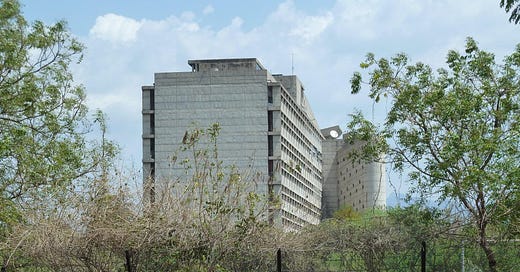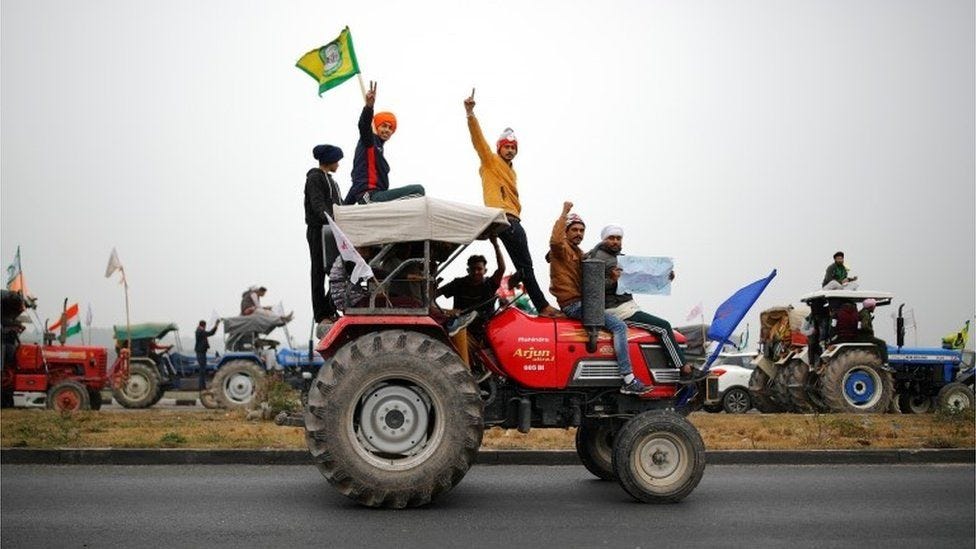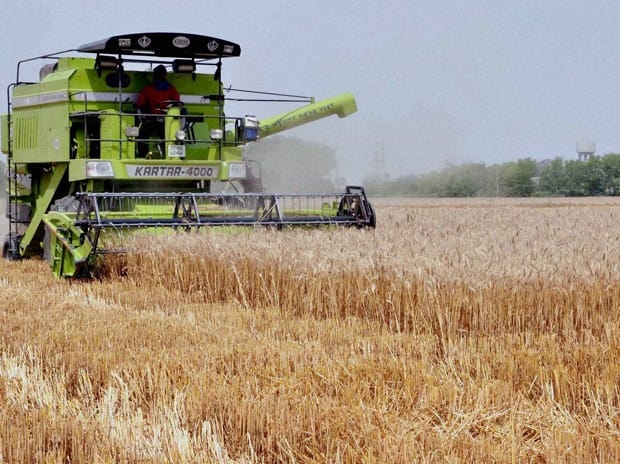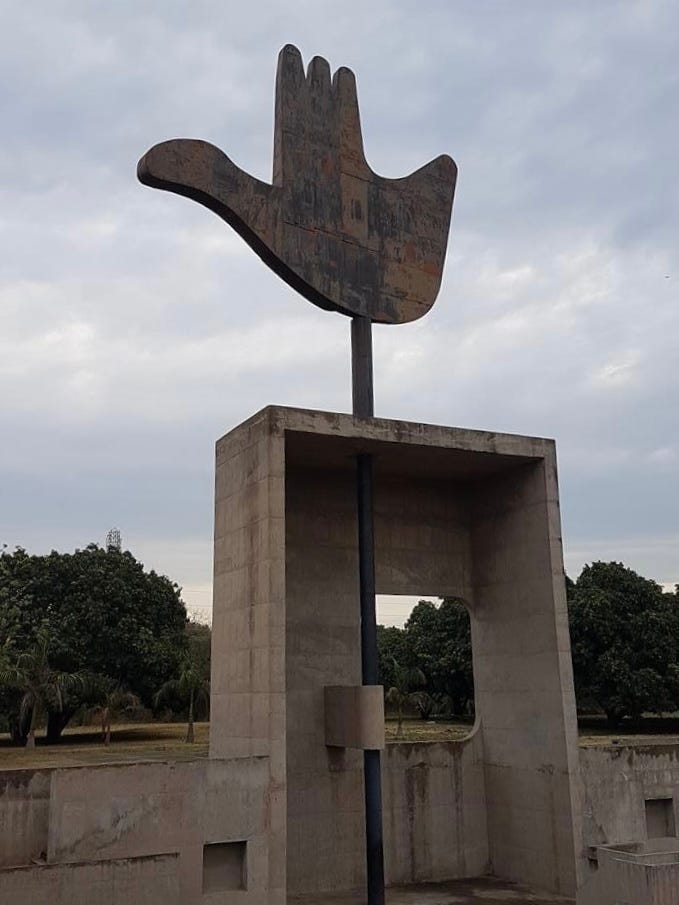How a Punjab IAS Officer Saved the Farmers' Land from Corporate ‘Land-Leasing’ Sharks
Dressed in the garb of agri-reforms and agri-investment-cum-modernisation, the wolf prowled around the corridors of the Punjab Civil Secretariat in the summer of 2019.
How the Corporate ‘Land-Leasing’ Sharks were kept at bay in 2019
As the farmers of Punjab are gearing up once again to march towards New Delhi, demanding that the Minimum Support Price (MSP) for various crops be given statutory status, my thoughts drift back to July 2019. It was a time before the world was hit by the Covid pandemic and before the farmers' agitations that have since captured the nation's attention. I remember it vividly, but it feels like a different era, one where the fate of Punjab's farmers hung in a precarious balance due to a proposed agri-reform.
The Proposal That Threatened a Way of Life
In July 2019, as a Punjab cadre IAS officer, I was reassigned as the Financial Commissioner (Revenue) of Punjab, under the governance of Chief Minister Captain Amarinder Singh of the Congress Party. It was around this time that the proposed Punjab Land Leasing Bill, 2019 was being aggressively pushed forward by the Chief Minister's office. The Bill, which was drafted by the Punjab Revenue Commission— headed by a retired Chief Justice of Punjab and Haryana High Court— was touted as a means to usher in massive investments in Punjab's agricultural sector. However, upon reviewing the draft, I found myself deeply concerned about its implications for the state's farmers.
Those interested in perusing the complete legal draft may follow the link above, but the salient features of the same are presented below.
The Punjab Land Leasing and Tenancy Bill, 2019
Ostensibly, the Punjab Land Leasing and Tenancy Bill, 2019, represents a comprehensive framework aimed at consolidating and regulating the laws related to land lease and tenancy within the State of Punjab, India. The salient features of this Bill included:
Applicability and Commencement: It applies to the entire state of Punjab and will come into effect on a date specified by the government.
Definitions and Scope: The Bill provides clear definitions of key terms such as "agreement," "lessee," "lessor," "rent," and "agriculture and allied activities," encompassing a wide range of activities related to agriculture.
Lease Agreements: Stipulates that lease agreements must be written, specifying terms including the identities of lessor and lessee, the duration of the lease, rent details, and any other mutually agreed terms. Leases can be made for various durations, with a maximum period not exceeding fifteen years.
Rights and Liabilities: It outlines the rights and responsibilities of both lessors and lessees, including the lessee's right to cultivate the land without interference and the lessor's entitlement to receive the leased land back at the end of the lease term without encumbrances.
Improvements and Damages: Addresses improvements made to the leased land by the lessee, which increase productivity, and the compensation for damages caused by the lessee to the land.
Dispute Resolution: Establishes Revenue Courts and Tribunals with the jurisdiction to adjudicate disputes arising from lease agreements, including eviction of lessees and recovery of rent or damages.
Special Provisions: Includes special provisions for certain categories of lessors and lessees, such as members of the armed forces, Non-resident Indians, women, and members of Scheduled Castes.
Conciliation and Mediation: Encourages settlement of disputes through mediation and conciliation before proceeding to adjudication.
Execution of Decrees: Details the process for the execution of decrees issued by Revenue Courts and Tribunals, including the execution of warrants for possession and the recovery of amounts due.
Overriding Effect and Repeals: Asserts that the provisions of this Act will have an overriding effect over any inconsistent laws currently in force. It also repeals several previous acts related to tenancy and agriculture lands in Punjab.
Miscellaneous Provisions: Addresses various administrative and procedural aspects, including the service of summons, computation of periods of limitation for appeals, and protection of action taken in good faith under the Act.
This Bill, as per its stated objects, aimed to modernize and streamline the legal framework governing land leasing and tenancy in Punjab, providing clear guidelines and protections for both landowners and tenants engaged in agricultural and related activities.
Standing Up Against the Tide
My apprehensions about the bill were numerous and significant enough that I felt compelled to submit them formally on 30th July 2019, not only in physical file format but also through electronic means. It is reproduced below verbatim.
PROPOSED LAND LEASING AND TENANCY BILL
1. The functions of the proposed revisionary Tribunals could easily be performed by the Divisional Commissioners; this shall entail saving of funds to set up and maintain their establishment as well.
2. Now, the leases (big companies) would be able to take literally thousand of acres of land from small and marginal farmers on long lease-basis; this becomes a way to circumvent the provisions regarding the Ceiling Laws as enshrined in the Punjab Land Reforms Act, 1972. Under the existing law, no person can hold more than permissible area under cultivation—not even as a tenant/ lease.
3. The existing rights of the tenant under the existing laws will be diminished as soon as the new Act comes into force. These rights shall stand totally extinguished upon passage of 5 years of the new law coming into force.
4. The FD (Finance Department) has not agreed to the lease/ tenancy agreement being totally free from Stamp Duty as well as Registration Fee.
5. No benchmark has been prescribed under the law for big companies taking up large tracts of land on lease. Some stipulation regarding net-worth or the investment proposed to be made may be considered as a part of the statutory scheme. They must have the Registered Office in the State of Punjab.
6. In case of bankruptcy proceedings of the leasee companies, the interest of the landowner may not be sufficiently protected.
7. The larger socio-economic question needs to be considered—the new Act may render the small landowners, who lease out their land for long tenures, virtually unemployed. We need to have a strategy to keep them gainfully employed.
My feedback was not well-received; I was informed that my observations— dubbed as objections— were seen as obstacles to the potential economic benefits the Bill promised to usher in. Despite the pressure, when the Bill was presented before the Council of Ministers, I did not hesitate to voice my concerns. To my relief, many ministers shared my apprehension, calling for a more detailed examination of the proposed legislation.
The Battle for Farmers' Rights
A Cabinet sub-committee was quickly formed, which, to my dismay, endorsed the Bill, in toto and in one sitting, without any worthwhile discussion of its various provisions or any due application of mind. Undeterred, I reiterated my stance that the matter required broader consultation with stakeholders, suggesting a meeting chaired by the Chief Minister. Although scheduled multiple times, such a meeting never materialized, and the outbreak of the Covid pandemic eventually sidelined the contentious Bill. By June 2020, as I was transferred from the Revenue Department, the burgeoning farmers' agitation had already begun to take shape, and the controversial Bill was quietly shelved.
Reflections on What Could Have Been
The proposed Punjab Land Leasing Bill till recently remained accessible on the official website of the Revenue Department, a haunting reminder of a path almost taken. I often ponder the consequences had the Bill passed into law, questioning how we could have justified such a decision to Punjab's farmers and to the wider Indian agricultural community, especially during the peak of the Farmers’s agitation. It was my duty to bring this matter to the public's attention, ensuring that the citizens of Punjab, and indeed all of India, were aware of the potential jeopardy facing our farmers, which I did within few weeks of my retirement from the IAS on 31st July, 2021, though a Twitter thread. An inquisitive reader may like to click and follow to weigh the response of the netizens to my disclosures.
A Lesson for the Enlightened Citizen
A farm leader once remarked in the aftermath of the agitations and governmental promises, "Never bother for what a politician says; keep a close watch on what he does." This statement encapsulates the essence of vigilance required from every enlightened citizen. It serves as a reminder that actions speak louder than words, especially in the realm of political promises and policies that have the power to shape the lives of millions. As we stand in unflinching solidarity with our farmers, let us not forget the lessons learned from these pivotal moments in history, ensuring that the interests of those who toil the land are never overshadowed by the allure of investment and so-called reform, that would perhaps lead to disempowerment, unemployment and impoverishment.










It is great contribution from civil servant to the state against the wishes of mighty political executive. Transfer is a way of life for a public servant.
I am supportive of this view that if a n officer takes stand for the public at large his soul supports him, public appreciates.
I too have been taking very hard steps in my career as a civil servant, suffered transfers but stood to my point and was successful on my mission.
👍👍